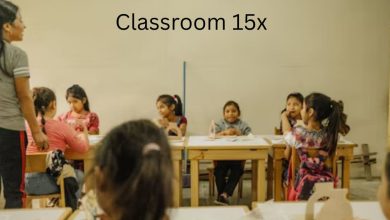
The effect of PC can be found in each separate field either in business or employments. The PC has gotten a few changes different fields. Presently one can speak with other by web through mail, talk or webcam. The training has acquired progressive change instructive fields. The instruction with the assistance of web based preparing system has open entryway for online training. The online type of instruction has encouraged in arriving at training to each specialty of world with the assistance of PC associated with web associations. The electronic type of training has annihilated absence of education and work for better in financial development and improving framework. The online type of instruction includes electronically bolstered learning and preparing. The educational plan is basic and far reaching and training approach is conceivable through present day gadgets and most recent contraptions. The substance of learning is conveyed by means of web, intranet or extranet, sound or video tape, satellite TV, and CD-ROM as content, picture, movement, gushing video and sound.
The online trainings courses can be conveyed by electronic learning, PC based learning, virtual study hall openings and advanced coordinated effort. The instruction is bolstered by electronically upheld learning by means of web, intranet sound or video tape, satellite TV, and CD-ROM. The material is accessible as content, picture, movement, video and sound. One can go to direction classes or watch preparing project led by virtual educator. The headway in innovation has brought quickly change in instruction and now one can pick up pick thorough learning program accessible in online training universities as per their movement or need. The applicant can get want training of well known college with the assistance of online type of instruction. The worldwide type of instruction has explained out the boundaries of training of remote areas. Presently they can pick up learning and go to virtual classes and take help of world class personnel through mail or content talk message or different methods for long range informal communication destinations.
The courses offer numerous alternatives to pick or choose. One can do the executives or complete their science certificate or recognition by online college. The online instruction has made feasible for getting training of optional school or higher capability. One can land position everywhere throughout the world with the assistance of online degree courses as it contains esteem and perceived the whole way across the world. For experts, online degree offer open door for better vocation choices. The worker can improve their activity profile or can acquire transforms it. They can get advancements with level of higher capability. As gaining online training degrees would not acquire any hindrances working profile, same time you got level of advanced education while working. So one can feel that such degree give learning while at the same time winning. Likewise it include bonanza in profile as experience continue enduring with degree trainings. The expert can acquire improvement occupation profile and can pick up advancements in assignments and augmentation in pay. As individual development means country advancement so nation can improve their instructive structure and check monetary development.





